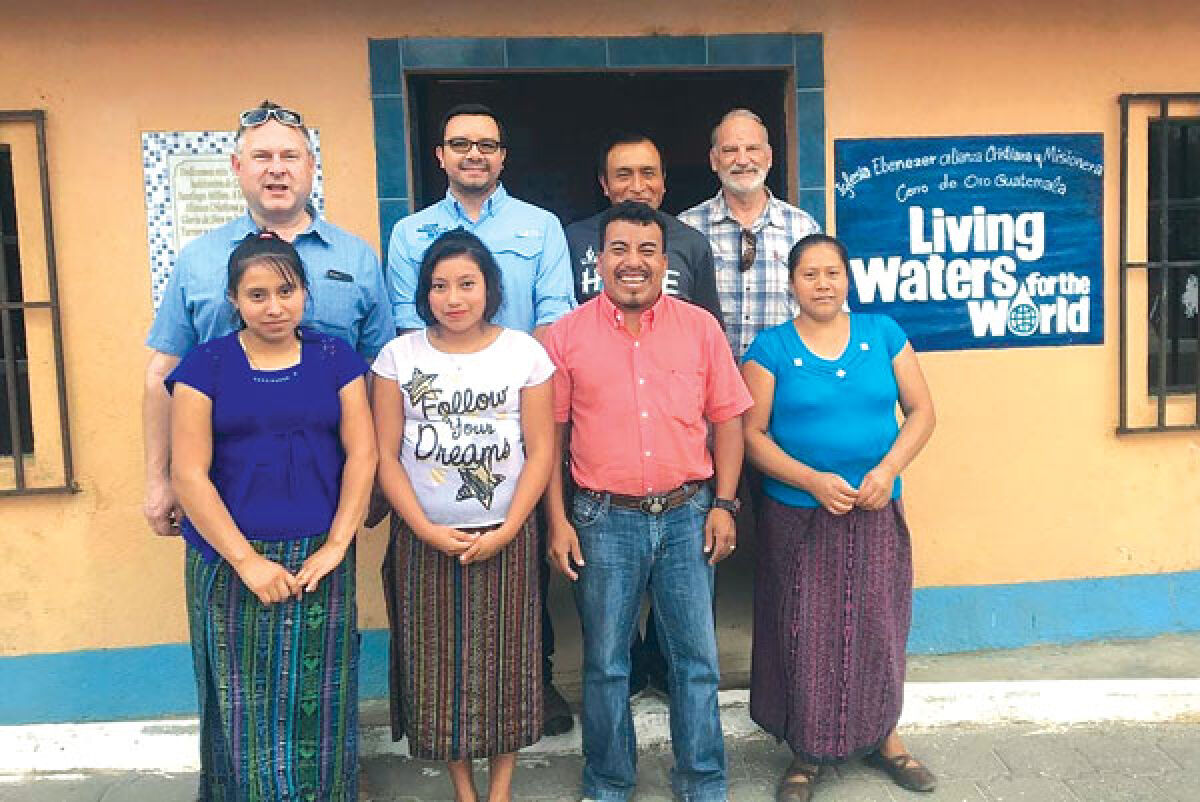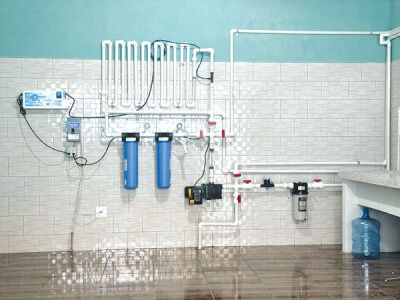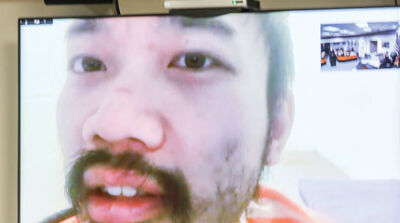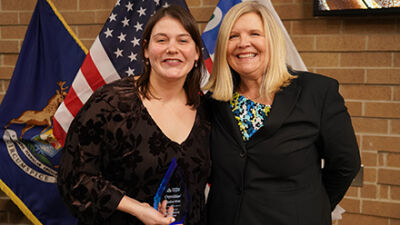NOVI — Members of Faith Presbyterian Church in Novi have made it their mission over the last 10 years to bring purified water to the people of Guatemala. In February, five members of the church went to the country to install a water purification system at a school.
The area they visited has running water, but it is unfiltered and therefore contaminated with bacteria. The people cannot afford bottled water, which costs approximately $5 for 5 gallons. The majority of people in the area are coffee bean farmers and are lucky to make $20 a week, according to Mark Turner, a missionary with Faith Presbyterian. As a result, they are forced to utilize the unclean water and are susceptible to diseases from it.
“Many people think they could just boil the water and make it pure. Well, that’s true, but where do they get the wood from?” Turner said. “The other thing is they don’t understand that it is not when the water comes to a boil, it’s 10 minutes after it comes to a boil that everything’s killed. So it’s not a reliable way for them to get pure water. Then, of course, they have to have clean vessels to put it in or it’s contaminated again.”
Turner is responsible for initiating the church’s involvement with Living Waters of the World. He said the church has had involvement with several other missions in Guatemala, including medical care, abandoned women and drug problems, for 25 years. It was during another mission that he asked their medical team how things were going, and they informed him that they were seeing numerous cases that were a result of contaminated water. He said he decided that they needed to do something about it so that the medical team could deal with things that weren’t as easily preventable.
“I’m just the average person that has a passion for bringing clean water, because everybody should have clean water,” said Turner.
Since then, Faith Presbyterian has gone on six mission trips to the country and installed seven water filtration systems in the area, as one was installed in 2022 with the missionaries participating virtually as a result of the pandemic. During each weeklong trip, the missionaries teach the people how to install and operate the filtration system, how to bottle and sell the water, and what the purified water should be used for.
“The water is dear because it’s costly, so you have to take care of the water that’s in the bottle. So, you only use it for if you are eating or drinking, cooking, brushing your teeth, anything going into your mouth or caring for a baby, “ said Sue Randall, one of the missionaries. “If you were giving a baby a bath, you would use purified water, but if you yourself were to take a bath, you would not use purified water. That would be a waste. If it were here and readily available, like it is in the States, where you can just go turn on the tap or the garden hose and it’s all good, then you’d use it for everything, but that’s not the way it is there.”
Turner’s team consisted of five people including himself: two certified in the installation of the system, two to educate people on how the purified water should be used, and one manager.
“I realized what an impact I could make,” Randall said of her reason for choosing to do this missionary work. “It’s not just going and making a home for a family. You’re setting up a business for them to operate and share with the community, and then you’re bringing clean water and health into the homes of anybody that participates and purchases the water.”
Two local operators will have the job of running the filtration system as a business. The business will provide the operators with an income as well as pay for a new filter for the system annually. Turner said the operators charge the community at the rate of 75 cents to $1 for 5 gallons, which is significantly cheaper than the commercial rate and therefore much more affordable. The operators also commit to giving away 20% of the purified water they make, as there are still people who cannot afford to pay for it even at the much lower rate.
Turner said that during his recent trip to Guatemala, he spoke with some medical missionaries from Texas who asked him why they were installing water filtration systems, and they were surprised to hear that there had been an issue with the water in the area causing illness, as they said they hadn’t seen any cases related to unclean water all week.
“So now the medical teams can focus more on their serious problems and not on what we can cure with good water,” Turner said.
He said the medical mission is near to where they installed their first and most-lucrative-thus-far filtration system, and he said that he believes that it was because of the impact that site had on the community that the medical team didn’t find any water-related issues this year.
“I’m not saying there isn’t any issues in the community, but I’m saying it’s made a big difference,” Turner said.
He said all the filtration systems that they have installed are successful to different degrees. He said one produces over 200 bottles a day, and some make 10 bottles a day. He said it just depends on the operating partners, what the community needs, and how good of an entrepreneur they are.
The installation that was recently done is currently doing well and providing water for the students and their families. The site has to be certified by the government in order to provide the water to the general public. Unfortunately, the certificate takes about one to two years to acquire.
Faith Presbyterian has committed to installing at least 10 systems and therefore plans to return to Guatemala next year. In order to fund the cost of the $8,000 system and the other expenditures of the mission, the church, located at 44400 W. 10 Mile Road, will hold an annual fundraiser at 6:30 p.m. on Cinco de Mayo with a performance of Broadway tunes by John Bogden, the church choir director on piano and organ; Tim VanRiper, the assistant choir director, on vocals; and harpist Dicky Lee for a free-will donation.
 Publication select ▼
Publication select ▼



























